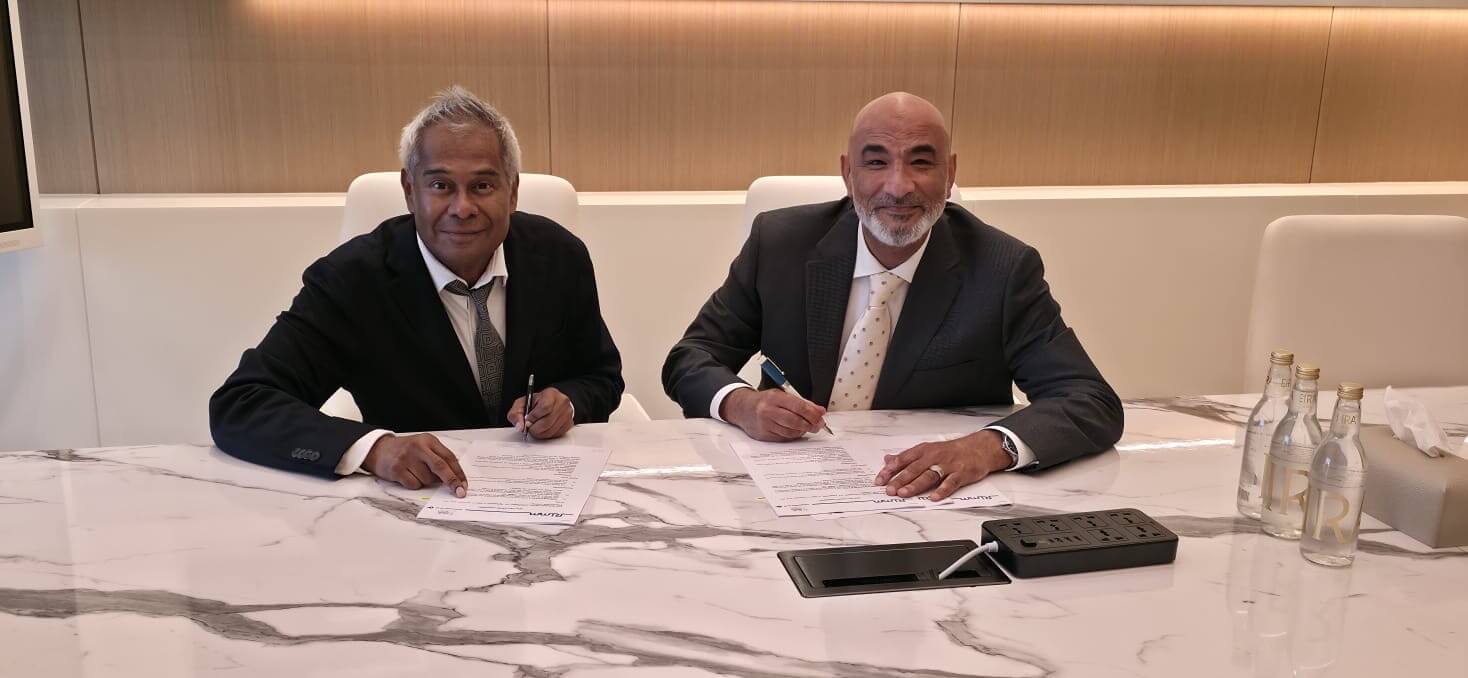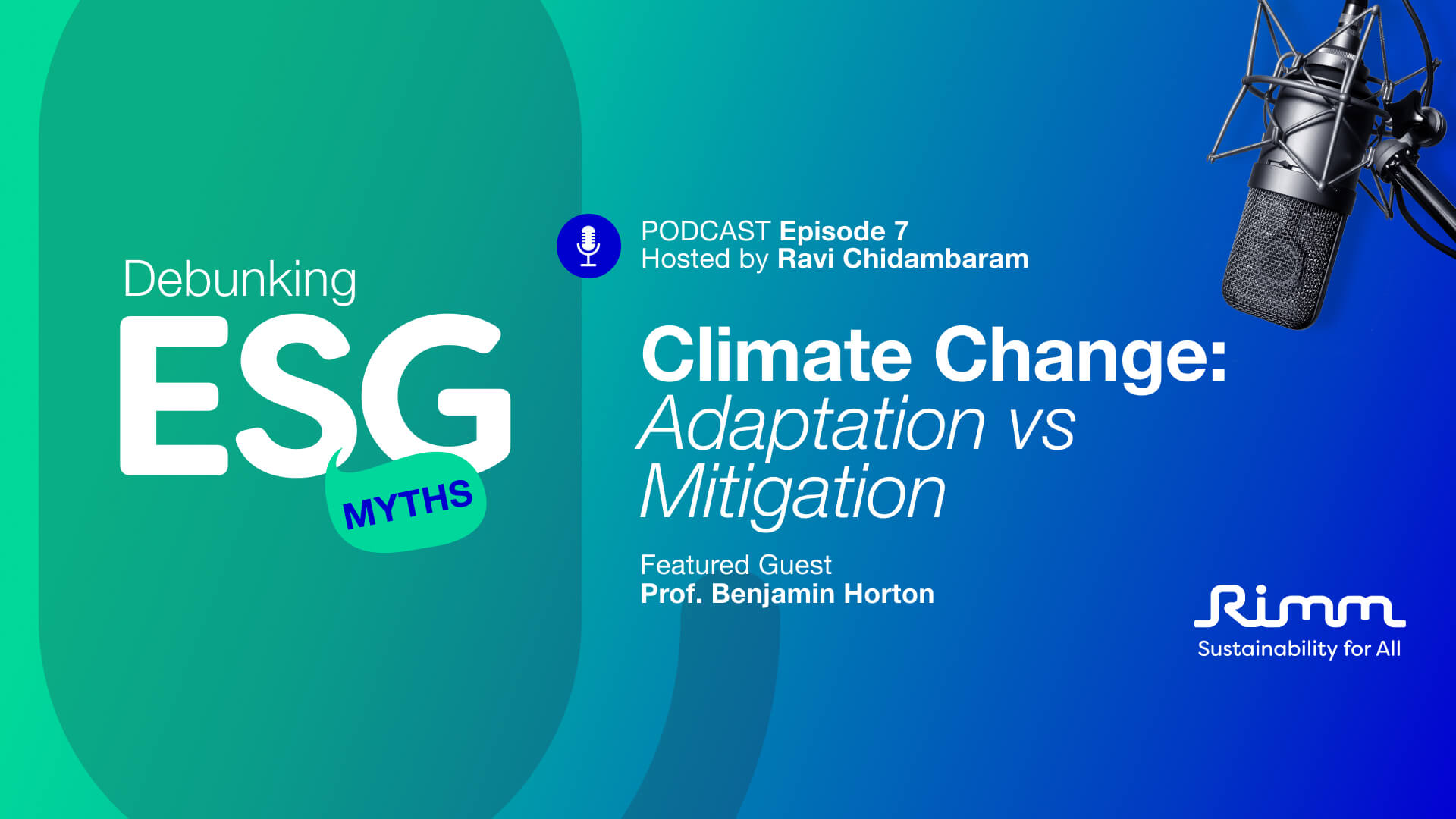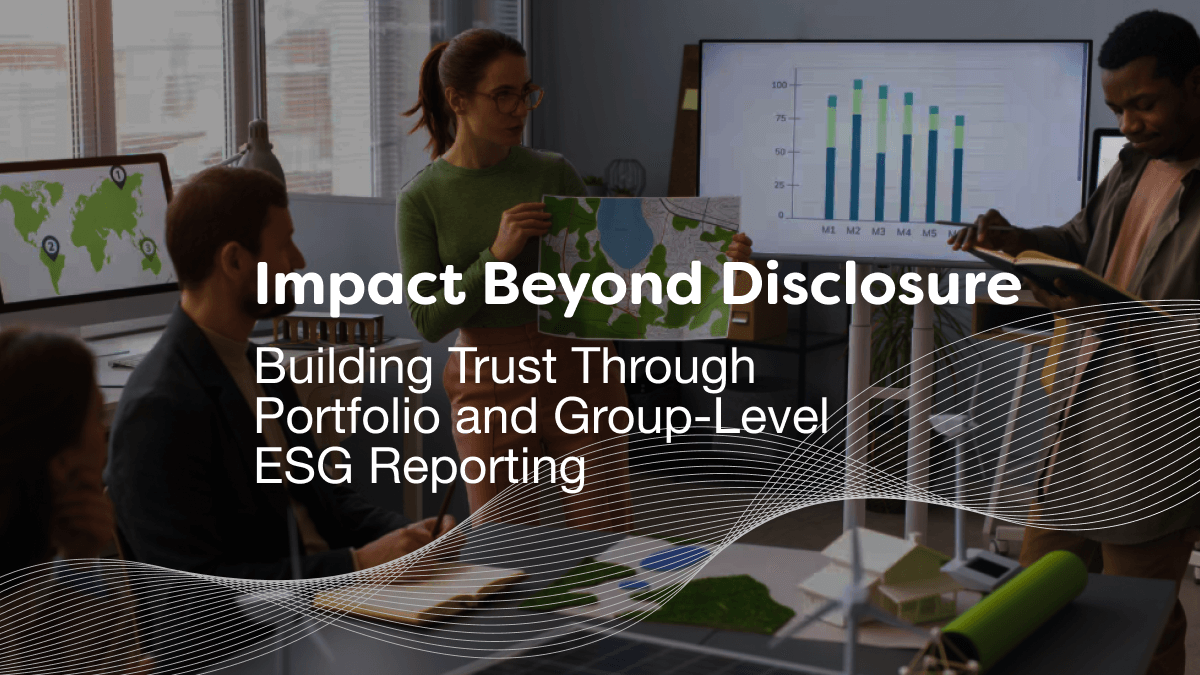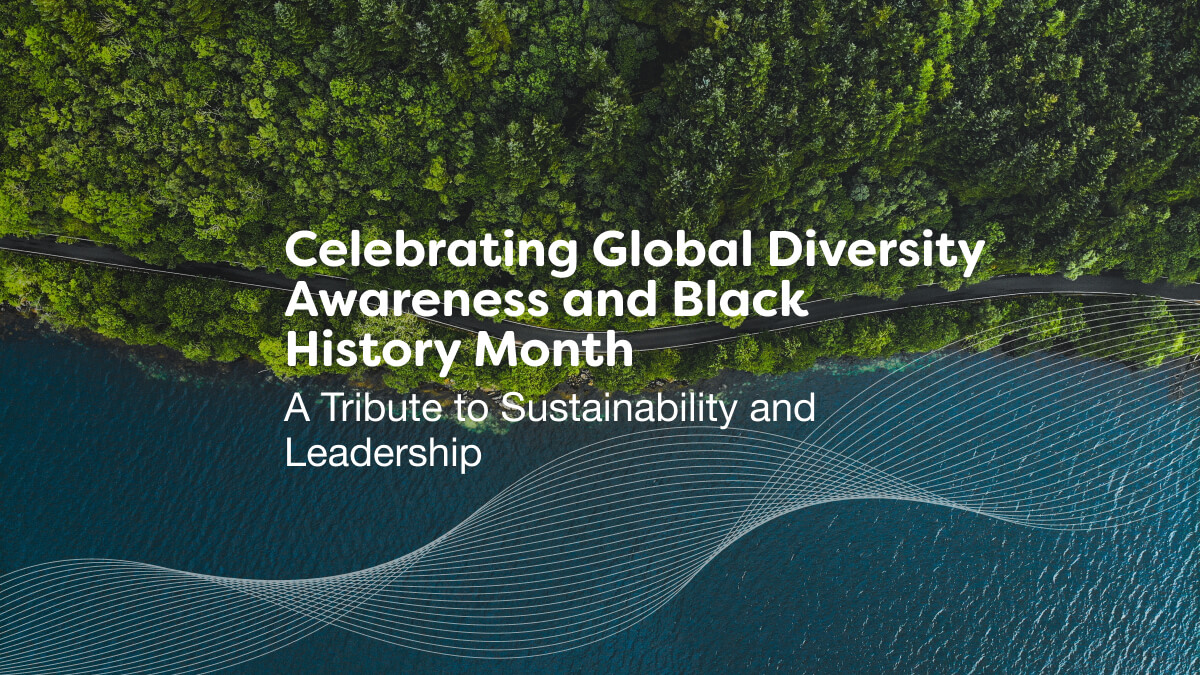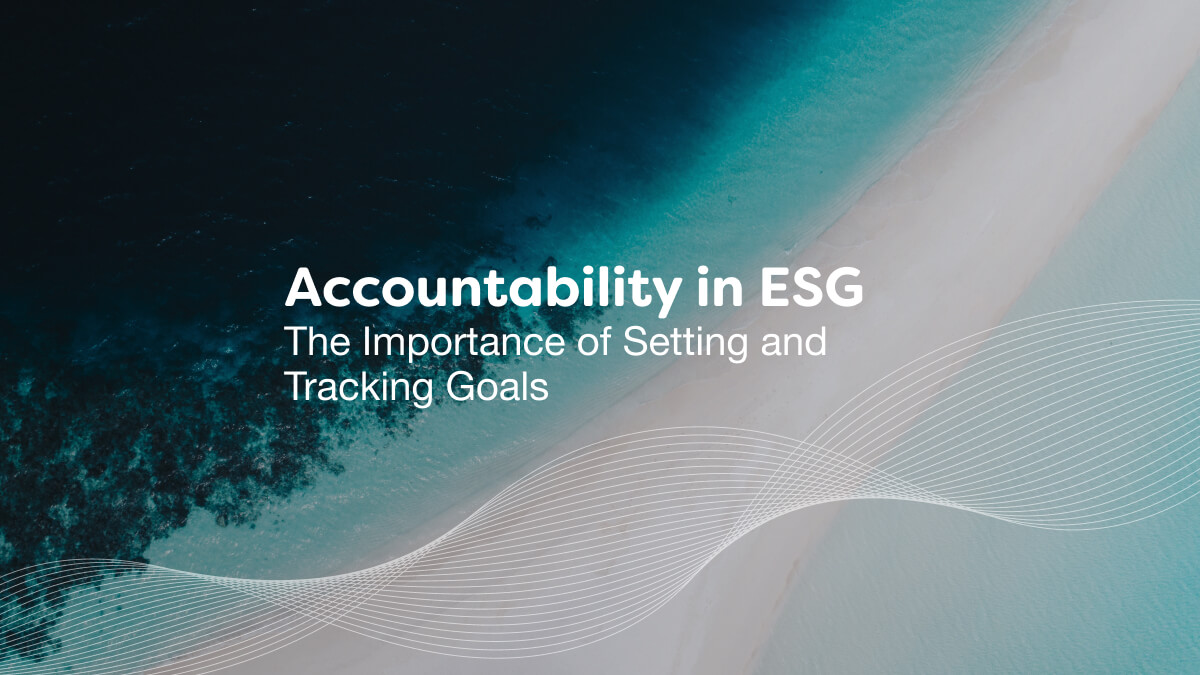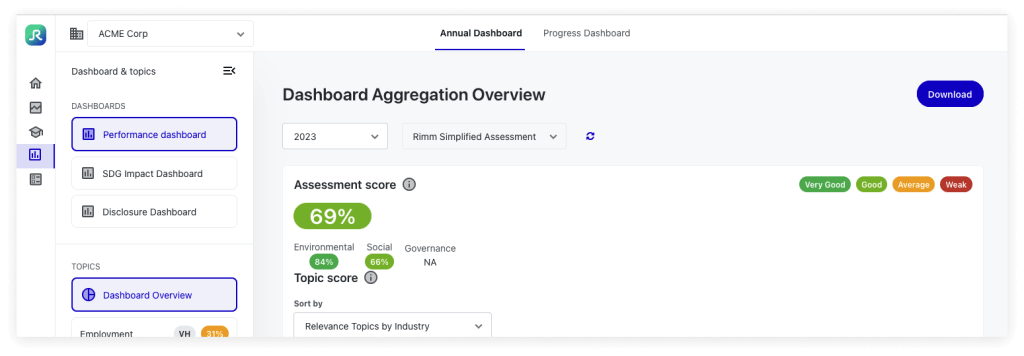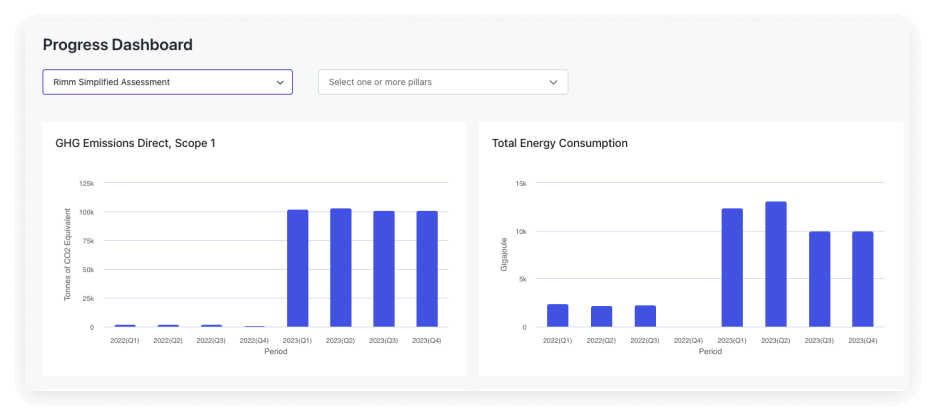As we progress through October, a month marked by significant global celebrations, it’s an ideal time to reflect on the powerful connection between diversity and progress. With Global Diversity Awareness Month and Black History Month taking center stage, we are reminded of the crucial role that diverse perspectives play in building a more sustainable and equitable world. These observances allow us to recognize the rich contributions of underrepresented communities and the impact they have made in shaping industries, cultures and importantly, sustainability. In this blog, we will highlight key figures in sustainability and ESG from diverse backgrounds, explore their contributions, and reflect on how embracing diversity can drive innovation and positive change in sustainability efforts worldwide.
How does diversity shape the world we live in today?
At Rimm, we believe that embracing diversity is essential to fostering real change, particularly in relation to the environment, society and for good governance. This month is a perfect opportunity to honor the individuals and communities who have made transformative contributions, driving global efforts toward environmental justice and inclusive sustainability.
Diversity is not just a social imperative – it’s a key driver of innovation and sustainability. Different backgrounds, experiences and cultures bring fresh insights that challenge the status quo, leading to more holistic solutions to the world’s most pressing environmental challenges. Global Diversity Awareness Month reminds us to celebrate these diverse voices, while Black History Month spotlights the achievements and contributions of Black leaders who have been at the forefront of social and environmental justice for decades.
The intersection of diversity and sustainability
In recent years, the link between diversity and sustainability has become more apparent than ever. Studies show that companies and organizations with diverse leadership teams are more likely to outperform their peers on measures of profitability and innovation, including in sustainability practices. In a world where businesses are expected to align their operations with the UN Sustainable Development Goals (SDGs), diversity is no longer just a matter of fairness – it’s a business necessity.
Diverse teams are better positioned to understand the multifaceted challenges that sustainability entails. Climate change, resource depletion and environmental degradation affect people differently across the globe. The solutions we create to combat these issues must take into account the needs of all communities, particularly those that have historically been marginalized or disproportionately affected by environmental harm. By embracing diversity, companies and organizations can create more inclusive, equitable solutions that benefit everyone.
Black leaders driving sustainability and ESG
Throughout history, Black leaders have made substantial contributions to sustainability and environmental justice and in this light, as we celebrate Black History Month, it’s important to celebrate individuals who have not only advanced social justice but also played pivotal roles in driving sustainability and environmental resilience.
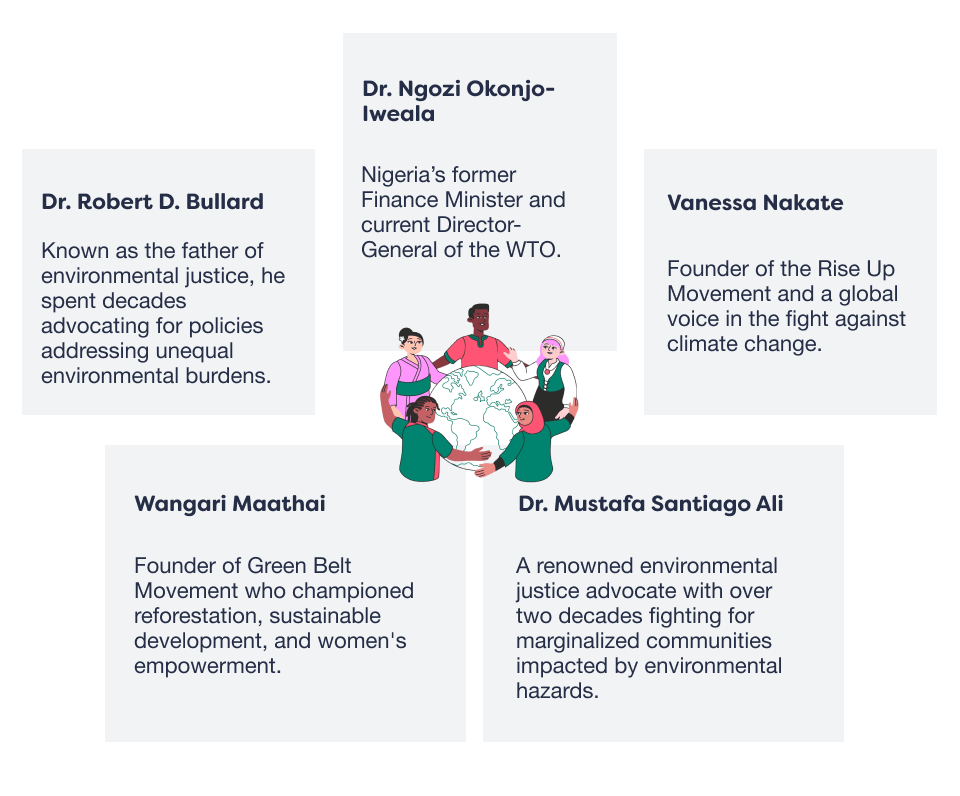
- Dr. Ngozi Okonjo-Iweala: Nigeria’s former Finance Minister and current Director-General of the WTO, Ngozi is a global advocate for climate finance, ensuring that developing countries, particularly in Africa, are equipped to face climate challenges while fostering sustainable economic growth.
- Dr. Robert D. Bullard: Known as the father of environmental justice, Dr. Bullard has spent decades advocating for policies that address the disproportionate environmental burdens faced by Black and low-income communities. His research and activism have drawn attention to the inequitable distribution of pollution, waste, and climate impacts, and he has worked tirelessly to ensure that sustainability initiatives prioritize the needs of the most vulnerable. His work continues to inspire a new generation of activists dedicated to social and environmental justice.
- Majora Carter: A prominent urban revitalization strategist and environmental justice advocate. She founded Sustainable South Bronx, an organization that addresses environmental issues and green jobs in underserved urban communities. Through her work, she has been a driving force behind projects that combine economic development with environmental sustainability, such as transforming abandoned urban spaces into green, livable areas. Carter’s vision extends beyond environmentalism—she emphasizes the importance of economic empowerment in low-income neighborhoods, ensuring that revitalization efforts create opportunities for long-term community resilience.
- Wangari Maathai: Though not exclusively celebrated during Black History Month, the late Wangari Maathai remains an iconic figure in the environmental movement. As the founder of the Green Belt Movement, she championed reforestation, sustainable development, and women’s empowerment. Her pioneering work in Kenya not only restored degraded landscapes but also empowered rural women through sustainable livelihoods. Wangari’s legacy is a testament to the power of grassroots activism in driving both environmental and social change.
- Dr. Mustafa Santiago Ali: A renowned environmental justice advocate and policy expert who has spent over two decades fighting for marginalized and vulnerable communities disproportionately affected by environmental hazards. As a former senior advisor for environmental justice at the EPA, he has worked to address climate change, pollution, and health disparities in underserved communities. Through his work with organizations like the Hip Hop Caucus, Dr. Ali combines activism and culture to elevate awareness and drive action on critical environmental issues. His leadership continues to inspire meaningful change in both policy and grassroots movements.
Celebrating global diversity in ESG
Global Diversity Awareness Month calls for us to celebrate the rich variety of cultures, backgrounds, and perspectives that make our world a better place. In the realm of sustainability and ESG, embracing diversity is crucial. Diverse teams bring a wealth of perspectives that allow for more effective problem-solving, leading to innovative solutions that are both inclusive and impactful.
At Rimm, we are committed to fostering a diverse and inclusive work environment where individuals from all walks of life thrive. We believe that when we celebrate diversity, we unlock the full potential of our teams and our business at large, enabling us to create more equitable and sustainable strategies. Whether it’s through partnerships, clients, or internal teams, diversity is at the heart of everything we do.
As we commemorate Global Diversity Awareness Month and Black History Month, we encourage businesses, organizations, and individuals to reflect on the importance of diversity in shaping a sustainable future. Whether you are leading a company, managing a team or participating in community initiatives, consider how diverse perspectives can fuel innovation in your sustainable efforts.
Here are a few ways you can actively promote diversity and sustainability:
- Educate and empower: provide education on the intersection of diversity and sustainability within your organization. Empower diverse voices to lead sustainability initiatives.
- Support diverse leaders and organizations: look for opportunities to partner with or support qualified leaders and organizations making a difference in sustainability, ESG, and other areas that are relevant to your needs as an individual.
- Advocate for environmental justice: ensure that your sustainability initiatives address the needs of marginalized communities, particularly those disproportionately affected by climate change and environmental degradation.
Diversity fuels innovation, and the contribution of Black leaders and diverse communities are essential in shaping a more sustainable world. At Rimm, we continue to celebrate and recognize the power of global perspectives in addressing our planet’s most pressing challenges. As we honor Global Diversity Awareness Month and Black History Month, let us commit to advancing the goals of sustainability and environmental justice with inclusive and innovative solutions that benefit everyone.
By taking these steps, we can work together to create a more sustainable and equitable future for all.
